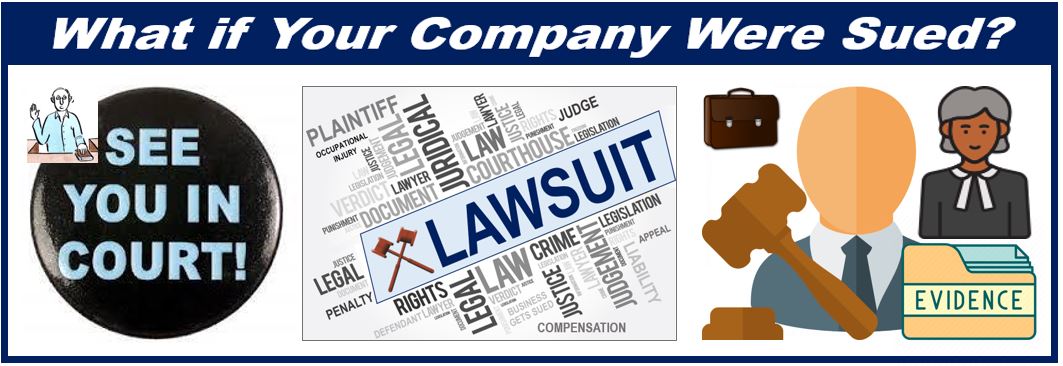Owning a small business is part of the American dream. And lawsuits against your business can be a nightmare. An estimated forty million lawsuits are filed every year in federal court with another 100 million filed in state courts. Depending on the source, anywhere from one in two to one in three businesses is sued every year, though the risk varies based on exposure and industry. This means that if you haven’t been sued yet, you will be soon. Here’s what to do if your business gets sued.

Check the Contract
Up to sixty percent of all business lawsuits involve contracts. These can range from clients who are slow to pay their invoices to disputes over the scope of work. You can prevent many of these lawsuits by having an attorney draw up a contract that covers every contingency and clearly outlines the expectations for all parties involved.
Have a contract for every employee and every contractor. Don’t use contracts off the internet when you hire a contractor or employee, since it may not be legal in your state or truly applicable to the situation. And don’t rely on addendums and extensions of contracts. Draw up a new contract when you start a new project.
If there is a dispute over the contract, hire an attorney to argue your case. Their starting point will be your contract with the parties involved.
Review Your Formal Policies and Procedures
Formal policies and procedures shouldn’t be dismissed as a waste of time. This documentation is essential to the training of new employees. It should teach current employees the best way to do their job, too.
Formal policies like separating financial recordkeeping and audits minimize the potential for fraud. Formal procedures on how to check out customers and process payments minimize the risk of mistakes and fraud. If something has happened, review your processes and procedures.
If the situation is out of the ordinary, then you may need to create a new process for handling it or reporting it to a manager. If your staff followed your formal procedures intended to protect everyone involved, you may have less liability than if it was handled on the fly.
If your procedures contributed to the situation, you can offer procedural changes as a solution. If the employee involved violated your policies and procedures, taking in-house corrective action may help limit your company’s exposure.
Don’t Act without Expert Legal Advice
We advise against trying to resolve the situation yourself without legal advice. For example, offering an apology in person or in writing could be used against you. The attorney for the other side could use that as proof that you’re supposedly guilty, even though you were just trying to show genuine concern. Don’t destroy documents or send angry emails – talk to an attorney about what to do.
Hire an Attorney

If you’re being sued by a Houston personal injury lawyer, you need legal representation for your business. Note that you may need to hire someone other than the attorney you consulted with regarding your employee handbook or contracts. After all, fighting a personal injury claim is very different from arguing over whether or not the general contractor is responsible for fixing something found at the last minute.
You can contact your insurer for legal counsel, though you shouldn’t rely entirely on their legal defense of your business.
Interesting related article: “What is a Lawsuit?“

